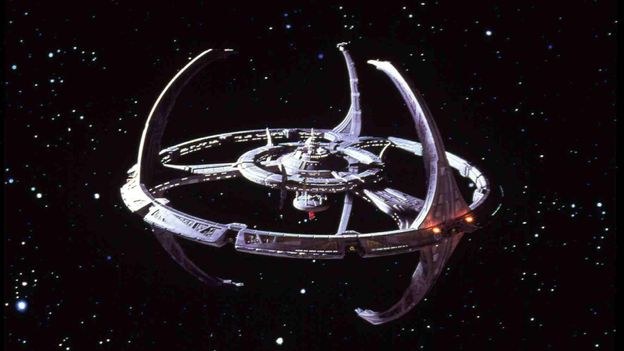Pimpare highlights one line from the episodes as a key to this idea. In a scene where Dr Bashir reassures a social worker that the situation in the Sanctuary District is not her fault, she responds: “Everybody tells themselves that and nothing ever changes.”
“That line is central to the message of the episodes,” Pimpare says. “You can’t just throw up your hands and say that the system is too big to influence. That’s how we get to those kinds of circumstances. In our real world, there are lots of things we can do to tackle homelessness.”
Michael and Denise Okuda have a similar perspective on the message of Past Tense, rooted in the original vision of Star Trek creator Gene Rodenberry. “Star Trek has always been political,” says Denise. “From the very beginning, Rodenberry designed Star Trek to use allegory,” Michael adds.
At the very start of 2024, with no Sanctuary Districts in sight, this is how the Past Tense episodes might best be viewed. Although their prediction of 2024 has proven untrue in a literal sense, the episodes carry an allegorical truth that comments on how the US approaches homelessness. But it’s also a truth that resonates far beyond those borders, speaking to an unfortunate human impulse to avert one’s eyes from suffering, rather than confront it.
Like many great works of science fiction, Star Trek continues to survive, even as another date on its timeline passes by. And Deep Space Nine’s Past Tense episodes will remain sadly relevant, as long as homelessness and inequality exist – no matter which year we are in.
– videos and can’t-miss news delivered to your inbox every Friday.









